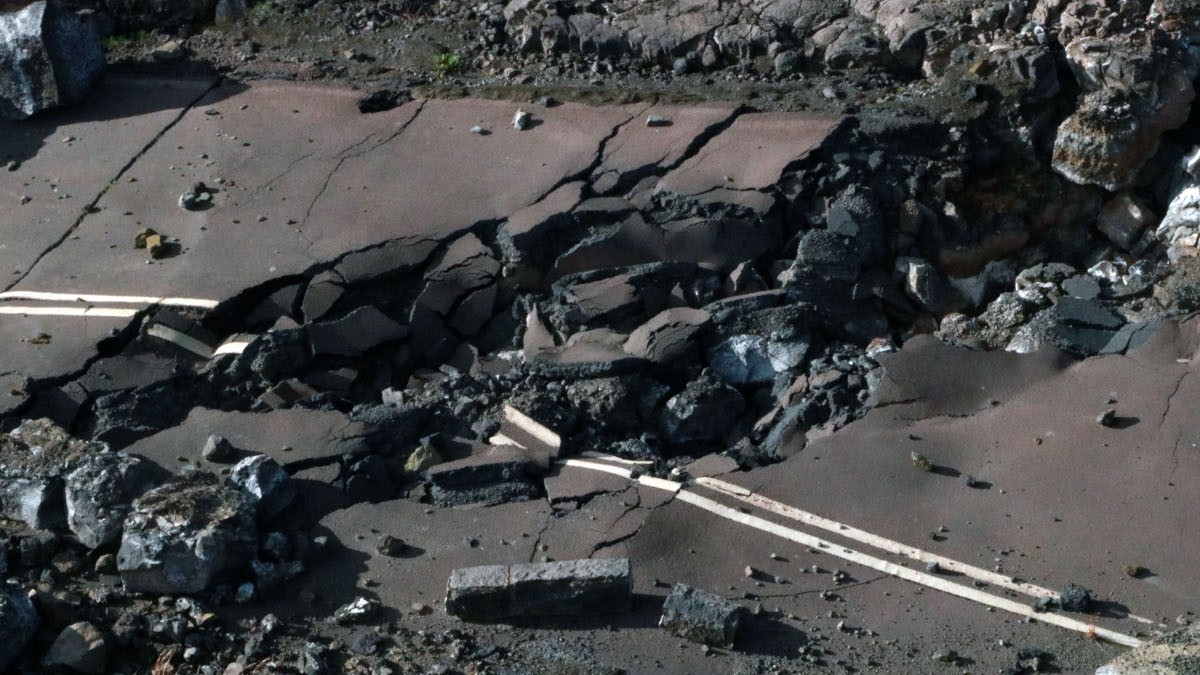(BIVN) – The annual Great Hawaiʻi ShakeOut earthquake drill is set for October 19th at 10:19 a.m. HST.
From this week’s Volcano Watch article written by USGS Hawaiian Volcano Observatory geophysicist Jefferson Chang:
The Great Hawaii ShakeOut is a yearly event for kamaʻāina and visitors to practice and prepare for when a large damaging earthquake hits the Hawaiian Islands. Every year, an earthquake drill happens on the third Thursday of October. This year, the ShakeOut is set for 10/19 at 10:19 a.m. HST.
“Drop! Cover! Hold on!” is the ShakeOut motto. But why? None of those actions can stop the shaking brought on by seismic waves rolling through wherever you are.
We drop to lower our center of gravity, so that it is more difficult for us to be thrown down by the ground that is violently moving in several different directions.
We take cover under something secure, like a sturdy desk or a thick bed mattress, to protect ourselves from objects that might fall or topple over, like ceiling fans, bookshelves, or televisions. If no cover is readily available, cover your head with your arms—some protection is better than no protection.
We hold on to sturdy fixtures, like a desk or table leg, so our cover stays with us, since the ground is moving up-and-down and side-to-side.
Here in Hawaii, thousands of earthquakes happen every year. Kamaʻāina and visitors might notice that the feeling of shaking is not always the same, even for earthquakes of similar magnitudes and that are just as far away.
This is because shaking is just one way that an earthquake releases energy. Earthquake energy is also released thermally and mechanically. This means there are three categories that comprise the “earthquake energy budget,” or the total energy released by an earthquake.
During an earthquake, rocks break and then slide past each other to release the built-up stresses imposed on them by tectonic or magmatic forces.
When rocks slide against each other, friction generates heat along the sliding surfaces. We are familiar with this, as it’s what warms our hands when we rub them together in cold weather. A portion of the total earthquake energy budget is spent thermally as the surrounding rocks generate heat sliding against each other.
Another byproduct of rocks sliding against each other is broken bits of rocks along the sliding surface. This is similar to the sawdust generated when sandpaper moves across a plank of wood, or the little bits of rubber that come off when erasing pencil marks on paper. A portion of the total earthquake energy budget is spent in mechanical wear, as surrounding rocks are broken.
The last part of the earthquake energy budget is the one that affects most people, the radiated energy. The energy spent on heating and breaking the surrounding rocks only affects the immediate area of the fault, which is usually deep underground and has little relevance to humans that live on the surface.
Whatever portion of the total energy budget that is not spent on heating and mechanical wear is released as “radiated” energy, which refers to the seismic waves that are radiated from the parts of the fault that slipped. This is the ground motion we feel on the surface during an earthquake.
Every earthquake spends its total energy budget on these three things, but not in equal or constant portions.
Earthquakes of the same magnitude (meaning they have the same total energy budget) may spend energy in different ways. One earthquake may spend most of its energy mechanically pulverizing little bits of the fault. Another earthquake, (perhaps on a more well-developed fault), might spend more on thermal heating or shaking the ground.
That is why ground motion is not always comparable across earthquakes with similar magnitudes. An earthquake that uses the bulk of its energy into radiated energy might cause more shaking than a same-magnitude earthquake that spends all of its energy heating and breaking the surrounding rocks.
With that said, if you feel the rumble of an earthquake, it is always a good idea to “Drop, cover, and hold on!”
For practice, please join the USGS Hawaiian Volcano Observatory this Thursday, 10/19 at 10:19 a.m., as we participate in The Great Hawaii ShakeOut. For more information on how your ‘ohana or business can participate, see shakeout.org/hawaii.


by Big Island Video News10:33 pm
on at
STORY SUMMARY
HAWAIʻI ISLAND - This week, the USGS writes about the annual earthquake drill that happens on the third Thursday of October.